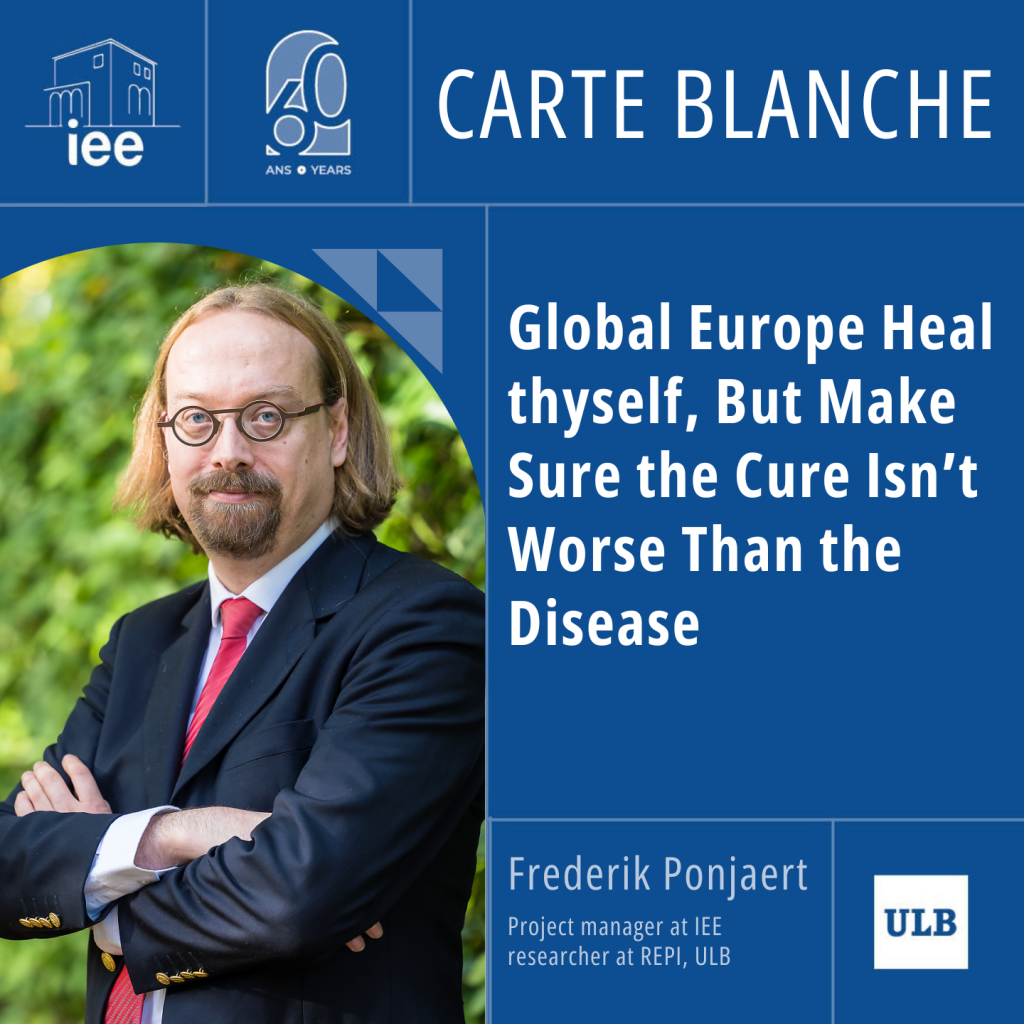Global Europe Heal thyself, But Make Sure the Cure Isn’t Worse Than the Disease
We continue the last thematic chapter “Europe and the world” with the article by Frederik Ponjaert, Project manager at IEE-ULB and researcher at REPI (Recherche et Études en Politique Internationale).
In his article Frederik Ponjaert illustrates the complexity of Global Europe: Just as it faces a number of existential challenges on the international stage, the EU has appeared to some both riven with self-doubt, and unwilling to make the necessary changes to secure its place alongside the other powers of amultipolar world. However, before engaging on an ambitious set of taboo-busting reforms of the EU’s foreign policy principals, leaders should careful consider that in seeking to constitute a sovereign Europe they do not undermine that which has set the EU apart as a multilateral institutional actor, both within and beyond the European continent.
Rules of the game
The aim is to reflect on the past to obtain a better understanding of the present, while also projecting a vision for the future. The comparison across time and societies help us to guard against relativism. Our affiliated members (members of the academic, scientific and administrative bodies as well as scientific collaborators) are invited to mobilize their expertise and share research findings to provide insights for a wider audience.
The means are a set of short format articles (comparable to op-eds in a newspaper). Articles are written in a language accessible to the broader public, in either French or English, and present one of the debates that have shaped the history of European integration. For example, and without being exhaustive, contributions could cover the purpose of Europe, the borders of Europe, Europe as an actor of/in Culture, the desirability of social Europe, Europe and market forces, Europe and its relationship with third countries/regions, Europe and geopolitical power, the nature of European law, and the best ways of telling the story of Europe.
The structure suggested for contributions is the following: the stakes and issues defining the debate; the chronology and dynamics of its evolution; elements of continuity or mutation; challenges of present-day discussions and possible outlines of future debates. This framework is indicative and does not exclude alternative or more creative forms, such as rewriting of history or fiction.
The operation ’60 years in 6,000 characters’ is coordinated by the IEE management team (François Foret, President; Chloé Brière, Director; Emmi Kallio, Head of Administration and Communications) and an editorial committee (Paul Dermine, Professor of EU Law; Marta Matrakova, Research Logistician; Frederik Ponjaert, Scientific Coordinator).
The authors express freely their opinions that do not represent an official position of the IEE-ULB.




